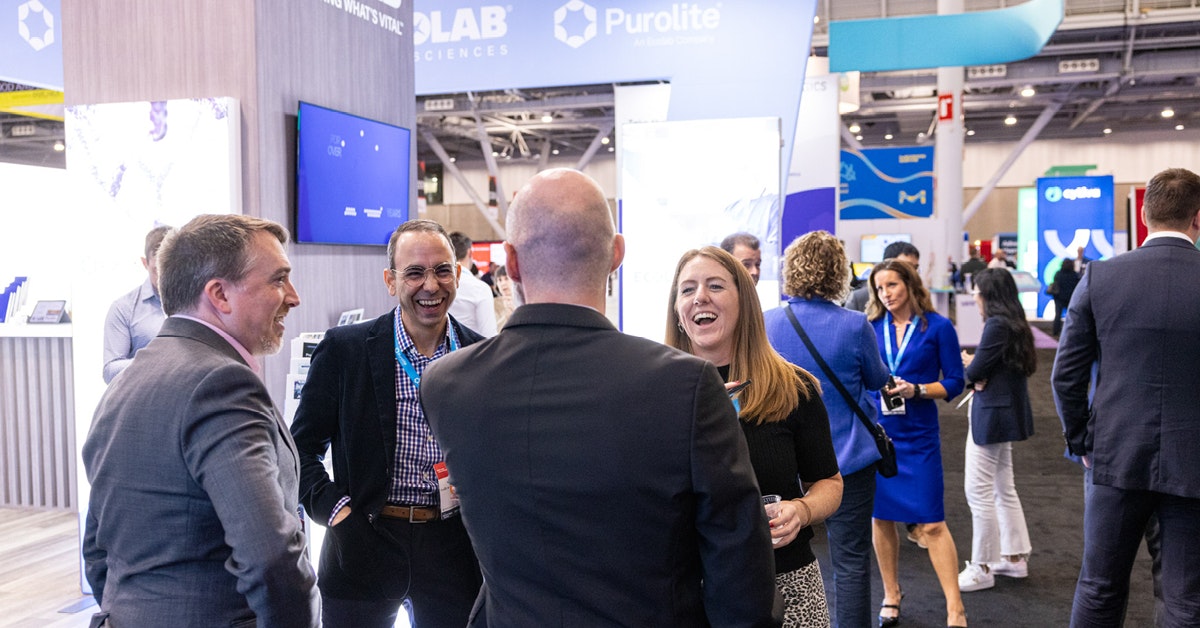San Diego Convention Center,
San Diego, CA, USA
Cell Culture & Upstream Processing Track
The upstream stage defines the success of every biologics process. With innovation accelerating in process intensification, digital control, and supply-chain reliability, upstream leaders are redefining how biologics are produced at scale.
Pushing Productivity, Precision, and Performance to New Heights - Key Topics Shaping the Future of Cell Culture & Upstream Processing:
Process Intensification & High-Density Culture
The upstream processing field is under pressure to boost productivity and reduce footprint. Intensified processes - such as high-density cultures, perfusion or hybrid fed-batch modes - are becoming pivotal to driving higher titers and reducing cost of goods. Explore novel CHO cell line engineering and hybrid fed-batch approaches that rival traditional perfusion systems in this track.
Media & Feed Design Optimisation for High Productivity
Optimising the upstream cell culture environment - media composition, feed strategy, amino-acid uptake, metabolic pathways - remains a major lever for improving yield and maintaining product quality. Learn how new metabolic profiling and seed-vessel strategies are redefining process performance and product quality by joining sessions such as “Implementation of a perfusion seed vessel to increase cell mass as well as optimize feed composition and strategy”.
Digitalisation, PAT & Real-Time Process Control for Scale-Up
As processes move from bench to commercial scale, ensuring robustness, reproducibility and control becomes essential. Integrating real-time monitoring, digital twins, PAT tools and AI analytics supports predictive scale-up and process transfer. See how biocapacitance probes, digital twins, and machine learning models are empowering adaptive control with sessions such as “Adaptive Process Control Using Biocapacitance Probes in Mammalian Fed-Batch Cell Culture for Improved Process Robustness from Bench-top to Pilot Scale".
Upstream Supply-Chain & Raw Material Resilience
Upstream performance is often limited by raw material variability and supply-chain disruptions. Ensuring consistency of media components, feedstocks and reagents is increasingly viewed as a strategic risk. Learn how upstream teams are qualifying suppliers, monitoring variability, and implementing quality frameworks that safeguard culture performance with sessions such as “Standardizing Raw Material Characterization for Regulatory Acceptance".
Cell Culture & Upstream Processing Speaker Snapshot
FAQs
What topics are covered in the Cell Culture & Upstream Processing Track at BPI West?
This track explores upstream biomanufacturing, including cell line development, culture optimization, bioreactor technologies, process scale-up, monitoring and control strategies, and integration with downstream operations.
How does the agenda address challenges in cell culture process development?
Our track focuses on improving productivity, reproducibility, and scalability while maintaining product quality and regulatory compliance in biologics and advanced therapy manufacturing.
Are both process development and commercial scale-up covered?
Yes, the agenda spans early-stage process optimization through commercial-scale manufacturing, highlighting strategies to translate lab-scale improvements into consistent large-scale production.
Does the track include insights on bioreactor technologies and automation?
Yes, our track explores advanced bioreactor platforms, single-use systems, automation strategies, and real-time monitoring tools that improve efficiency, consistency, and operational control.
How does the agenda support process optimization and efficiency?
Our content focuses on strategies to maximize cell growth, enhance product yield, reduce variability, and implement quality-by-design principles for robust and reproducible upstream processes.
Are analytical and data-driven approaches discussed?
Yes, our track covers the use of process analytics, digital monitoring, modeling, and data integration to enable predictive control and faster decision-making in cell culture processes.
Does the track address integration with downstream processing?
Yes, discussions include designing upstream processes that align with downstream purification and formulation, improving overall manufacturing efficiency and product quality.
Who should attend the Cell Culture & Upstream Processing Track?
This track is ideal for upstream process scientists, bioprocess engineers, technical operations teams, analytical teams, and manufacturing leaders involved in process development and scale-up of biologics and advanced therapies.
How does the content support commercialization readiness?
The track emphasizes strategies to develop scalable, consistent, and regulatory-compliant processes that can be reliably transferred to commercial manufacturing facilities.



